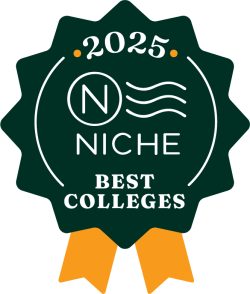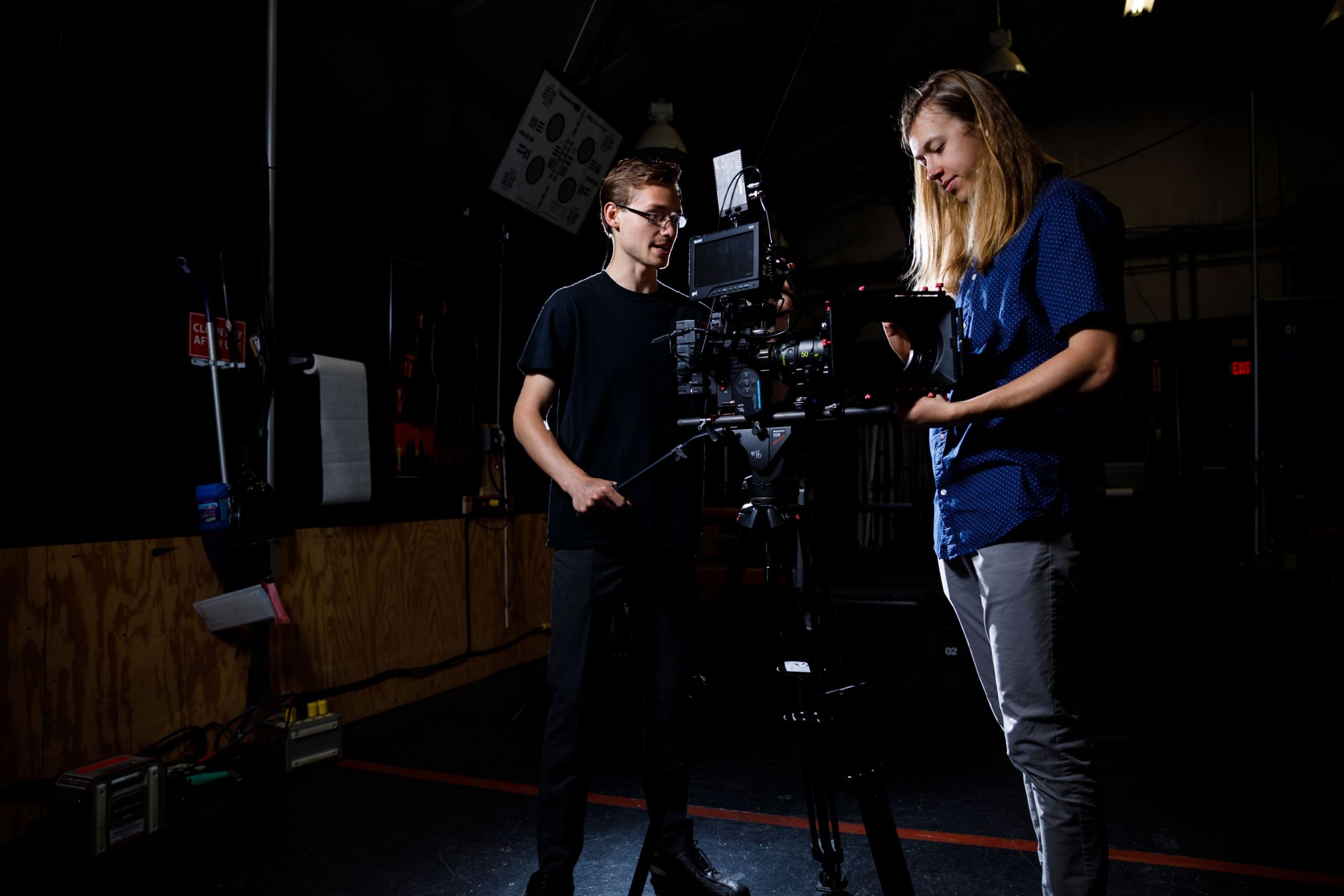Captivate Your Audience with Powerful Content by Earning Your Video Production Degree
Have you ever been moved by something you saw in a video, film, or television show? Are you interested in producing content that can do that for other people? With Liberty University’s Bachelor of Science in Digital Media and Journalism – Video Production, you can gain the knowledge and skills you’ll need to produce content that inspires, motivates, encourages, or entertains your audience.
With video production, you can work in a variety of positions related to the video and film industries. You may end up producing your own show or vlog. You could also create documentaries or virtual reality content. So don’t wait any longer! Your video production career is waiting for you – and our degree can help you get there.
Award-Winning Campus
At Liberty, you’ll find an affordable, high-quality education that equips students like you for the real world. Our commitment to excellence helped us rank as the #4 Best College Campus in America by Niche.com. Earning your degree from a nonprofit university with state-of-the-art resources like ours can help set you apart from your peers.

Why Choose Liberty’s Digital Media and Journalism Program?
At Liberty University, our mission is Training Champions for Christ, so we strive for excellence in all that we do. Here are some of the things you can look forward to in your digital media and journalism program:
- Each of your courses will be integrated with biblical principles so you can learn to incorporate Christian ethics into your profession and be a leader of integrity.
- Liberty University is accredited by SACSCOC, the Southern Association of Colleges and Schools Commission on Colleges. This means you can have confidence that your program has met rigorous accreditation standards and will help you land your dream job.
- Your professors have years of real-life digital media and journalism experience to share with you. Plus, they care about your progress spiritually – as well as academically – and are committed to praying for you and mentoring you.
- You are guaranteed hands-on experience in your field and networking opportunities with a required practicum and internship.
What Will You Learn in Our Video Production Specialization?
Producing content is an exciting and powerful responsibility. With a degree in video production, you could make or break a marketing or political campaign, move someone to take action, or create someone’s favorite show or vlog. At Liberty, you will learn the skills you need to make this a reality. Some of your studies include topics like lighting and cinematography, editing and effects, virtual reality design, and audio and video production.
In your core major courses, you will learn all the skills you’ll need to excel in media or journalism. Some of the things you’ll study include:
- Ethical principles for working in the media industry
- How society and cultures affect media and vice versa
- How to write for various mediums including the news, social media, and digital formats
- Television studio production
- The fundamentals of editing, audio and video production, and media writing
- The role and responsibilities of the digital producer
Review the Degree Completion Plan, and check out our featured courses below to learn more about what you’ll be studying!
Featured Courses
DIGI 310 – The Digital Producer and Director
Here’s what you’ll learn:
- Digital program development
- How to create a show concept from research and development to proposal
- Network, cable, and web distribution overviews
- Producer and director job functions
- Strategies related to news, comedy, talk, reality, and daytime and nighttime drama
DIGI 333 – Intermediate Video Production
Here’s what you’ll learn:
- Skill development and production techniques
- The theory and practice in planning, directing, and producing various video productions
DIGI 370 – Studio Production
Here’s what you’ll learn:
- The positions and equipment involved in studio production, the founding techniques of this craft, and the language and discipline of the studio environment
- The professional function of the various studio production positions
JOUR 220 – News Writing and Reporting I
Here’s what you’ll learn:
- A survey of media journalism formats and writing techniques
- How to write objective news stories, produce copy for broadcast news stories, and create online news stories
- The basic techniques used by the journalism professional to inform audiences for broadcast and written media
- The basics of blogging
Highlights of Our B.S. in Digital Media and Journalism Program
- Our curriculum focuses on experiential and hands-on learning.
- Learn and train with over $1 million in state-of-the-art equipment and facilities.
- Build your professional portfolio while working in our radio and television studios, an on-campus sports network, client promotional projects, our student-run public relations firm, and our school newspaper.
- Our degrees are career-focused. All of our instructors have both academic and professional credentials, and many of them are working in their field as they teach. You can be confident that you are getting an excellent education taught by current industry professionals.
- Our degrees emphasize integrity. As a nonprofit, Christian university, we aim to help raise the next generation of media professionals with unshakable ethics grounded in the Christian faith.
Digital Media and Journalism Degree Information
- Residential
- 120 total credit hours
- Transfer in up to 75% of your total degree
- Program falls under the School of Communication and the Arts
- View the Degree Completion Plan
- View our course catalog
Career Opportunities for Video Production Graduates
- Documentary filmmaker
- Video producer
- Videographer
- Virtual reality designer/producer
- Vlogger
Admission Requirements for Undergraduate Degrees
Every application is reviewed by the admission committee on a case-by-case basis, meaning there are no set minimums for acceptance. However, all applicants must submit the following documents* for admission:
- Admission application
- Admission essay
- Official college transcripts (if applicable)
- Official high school transcripts
- Results from the CLT, SAT, or ACT are not required for admission, but may be used in consideration for merit-based aid.
*Note that additional documentation may be requested by the admission committee after your application has been received.



